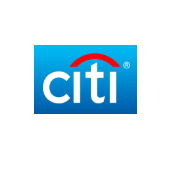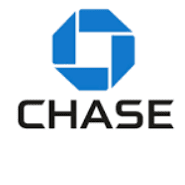A lot of people set up auto-pay on their credit cards to avoid the possibility of ever paying a late fee. That works well for ‘normal people,’ but for us complicated folks it’s not always so simple.
What happens if you make a partial payment before the auto-pay kicks in to free up some credit limit or to use up a money order or any other reason. Does the bank automatically adjust the auto-pay and only pull the remaining amount owed on the bill? Or do they proceed to pull the full amount of the statement bill?
Note: if you pay off the balance or part of it before the statement closes, the bank will never pull more than the statement bill. A lot of people like to pay off the balance or most of it before statement close so that it won’t negatively impact their credit score. (This issue is only for personal cards; for most business cards there no reason to pay off before statement close.)
It’s vital to know this info since if you have a $10,000 statement balance and manually pay off $8,000, and the bank proceeds to pull the full $10k, you might end up with overdraft fees from your bank if you don’t have a full $10,000 in your checking account.
This is an issue I’ve looked into in the past, and just got a kick in the pants from @milesperday to do a post about. I personally don’t use auto-pay at all; just posting data points that I’ve seen from others.
Contents
Amex
Amex will adjust the auto-pay and only pull the amount due.
Bank of America
A couple of data points (1, 2, 3) indicate that Bank of America will proceed to do the auto-pay for the full statement balance, even if you pay it off partially or completely manually.
Other data points indicate (1, 2) the reverse that if you make a payment with BofA – even a partial payment – they’ll cancel the auto-pay completely.
BofA does seem to be able to refund the payment directly back to your bank account (no need for a physical check), so that’s good. On another note, everyone talking about BofA auto-pay mentions that it’s a royal pain to set up.
Barclay’s
Barclay will proceed to do the auto-pay for the full statement balance, even if you pay it partially or totally beforehand (1).
Capital One
Capital One will always proceed to do the auto-pay for the full statement balance, even if you make payments beforehand (1, 2, 3, 4). One data point says (1) the reverse.
Chase
Chase will adjust the auto-pay and only pull the amount due (1, and heard from a friend).
Citi
Many data points indicate that Citi does adjust your auto-payment if paid partially or fully (1, 2, 3, 4, 5, 6). (counter data point)
Discover
Discover will cancel the auto-pay when fully paid up beforehand (2, 3)., and will adjust the auto-pay when partially paid beforehand (1).
Synchrony
Synchrony will adjust your auto-pay based on recent payments (1).
Target Credit Card (TD Bank)
The Target card will proceed to do the auto-pay for the full statement balance if you pay it partially before, but only if you still have a balance on the card in the amount of the auto-pay. They will never pull more than your total balance and bring your card balance into negative. (1, 2)
Presumably, all TD Bank auto-pays will work the same.
US Bank
US Bank will proceed to do the auto-pay for the full statement balance, even if you pay it partially before. If you pay in full they don’t pull any payment (1). Presumably the Fidelity credit card and other Elan cards will work like US Bank cards.
Wells Fargo
Wells Fargo will adjust the auto-pay and only pull the amount due (1).
Summary
To summarize, Citi, Chase, Amex, and Discover adjust your auto-pay to reflect recent payments. Other banks might pull the full amount even if you paid partially. In some cases, they’ll only do this if your balance won’t go negative (i.e. they’ll never pull more than you actually owe at the moment of the pull), and in some cases they won’t do the pull if you paid off the full amount since the statement closed.
Be careful there with your auto-pays! If you do have a data point to add, try to be as clear as possible, including if you paid off completely or partially and when it happened.







I just had Citi pull the autopay despite having made a manual payment a few days prior (after the statement closed, and before the autopay date)
Bank of America will pull the entire balance due as a payment (if autopay is set to pay in full) regardless of payments made after the close date but before the autopay draft date. I’ve even had them pull the entire balance due after I paid the card down to zero, but a chat with the reps will usually get that second payment reversed in a week or so.
FNBO Evergreen adjusted my auto-pay to account for 2 previous payments in the billing cycle.
Sallie Mae Evolve Mastercard: Any additional payments you make while enrolled in Auto Pay will not change the amount of the Auto Pay withdrawal. However, if the Current Balance is less than the scheduled withdrawal, we will withdraw the Current Balance.
I wasn’t sure with Citi, so I went into Autopay settings. It now has an option to skip the next scheduled autopay without having to restart it for the next month. So, I skipped the auto pay (for the current month), and then made a 1-time payment for the full statement balance.
DP for BOA: transferred away a balance for a personal card that I was carrying at 0% in November. Money hit the account just after my statement closed, so it still showed the full balance and a $60 min payment, and also got charged interest for a few days. Had autopay set up to pay the minimum payment, and figured it would just pay off the couple bucks interest, but instead it paid the full $60 that was the minimum on statement closing, so I ended up with a -58.xx balance. Called to have them credit it to my business card, they said sure, but it hasn’t happened yet (1-2 weeks ago).
For reference, my normal MO, is to use autopay to do the minpayment while floating a 0% balance, and statement balance for cards that I use for regular spending (and never spend what I don’t have covered) and NO AUTOPAY or minimum only while doing big MSR bonuses until I’ve completed them and the balance is under control.
I don’t have the executive function to avoid autopay and not end up missing payments on all my cards, but I’m regularly watching any card I’m doing an MSR for, so those are okay. I also rarely put big numbers on my regular spend cards, because if I have spending coming up that will exceed my typical checking safety margin, I try to open a new card to put it on to meet an MSR. That’s why those are generally safe for paying the statement balance.
Looks like Cap1 is still processing autopay regardless of previous statements. They won’t take you positive though so that’s a silver lining I guess. I paid my statement balance with Serve last month and didn’t think to turn off autopay. It ended up paying the card down to zero. The newest purchase was made 12 days before the bank paid it! Grrr.
US Bank is now adjusting auto-pay amount. I redeemed Cash+ reward as credit, and have refund from merchant. The auto pay amount is statement balance minus both credits.
I sure hope so
I have AutoPay linked to my US Bank checking account. If I pay my US Bank Cash+ balance in advance in full, the AutoPay will not process a payment (in other words, no double payment).
Made a partial payment on my Synchrony card (Rakuten) while I had Statement Balance autopay turned on. The autopay was adjusted down to reflect my partial payment.